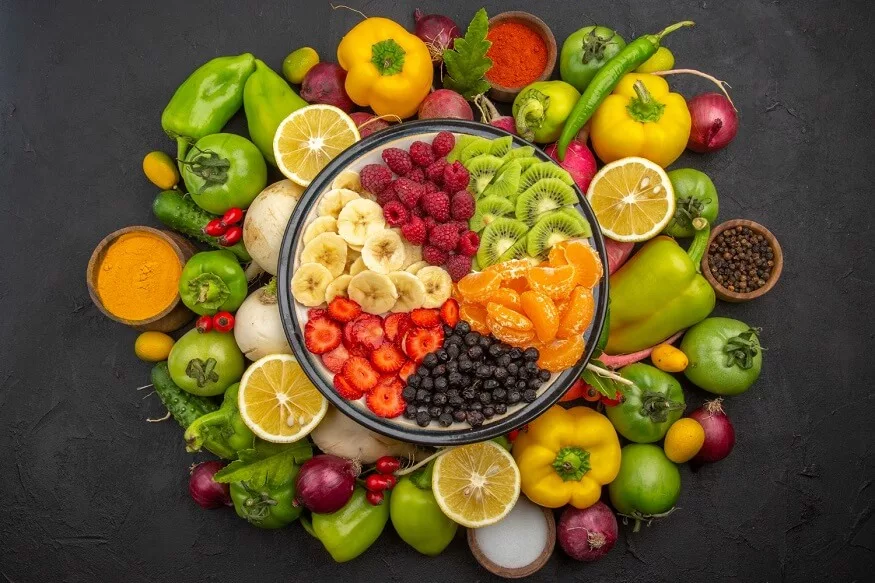In the constant pursuit of fostering well-rounded development for children, nutrition plays a quintessential role. Among the plethora of nourishing options, certain fruits have been identified as not just beneficial, but as powerhouses for cognitive enhancement and memory boosting.
These ‘brain boosting foods’ are invaluable in shaping the mental faculties of children, influencing their academic performance, and overall brain health. Understanding which fruits and food items qualify as the best brain food is critical for parents aiming to bolster their child’s intellectual capabilities.
The Science Behind Brain Food for Memory
Before we delve into the specific fruits that are advantageous for memory, it’s important to understand what makes certain foods especially good for the brain. Brain food for memory typically contains antioxidants, good fats, vitamins, and minerals that help in the brain’s development and function. These components aid in protecting the brain against oxidative stress and providing energy for the complex processes of memory consolidation and recall.
Fruits Good for Brain
A myriad of fruits fall under the category of being exceptionally ‘fruits good for brain’ health. They pack a punch with their rich contents of vitamins, minerals, and other nutrients essential for neurodevelopment and cognitive function. Here’s a breakdown of some prime fruits that are not only delicious but also cognitive enhancers:
Blueberries – The Antioxidant Powerhouses
Blueberries are a superfood for enhancing memory in kids. Their antioxidants improve brain function and neural connections, promoting better memory retention and cognitive development in children.
Avocados – Full of Healthy Fats
While not everyone’s traditional idea of fruit, avocados are a rich source of unsaturated fats, which are essential for brain health. They support the building of brain cell membranes and can contribute to improving the blood flow to the brain. Regular consumption of avocado can improve memory and concentration, making it a superior fruit for brain health.
Apples – For Overall Brain Health
Apples contain high levels of quercetin, an antioxidant plant chemical that keeps mental juices flowing by protecting brain cells against degeneration. Additionally, the fibre in apples helps to keep children full and their energy levels steady, providing a conducive environment for concentration and memory retention.
Citrus Fruits – Vitamin C for Mental Agility
Oranges, lemons, and other citrus fruits are excellent brain foods for memory because they are high in vitamin C. This potent antioxidant does not only support immune function but also plays a role in brain health by preventing mental decline and promoting the repair of brain tissues.
Strawberries – The Sweet Boosters
Like blueberries, strawberries are high in antioxidants, particularly vitamin C and flavonoids. They are known to improve motor skills and the cognitive function of the brain. Their natural sweetness also makes them a favourable option among children, ensuring that these brain boosting foods are consumed without fuss.
Also Read: Apricot vs. Peach 5 Key Differences Full Health Comparison
Incorporating Fruit for Brain Health into Your Child’s Diet
Now that we have identified the fruits good for brain health, let’s explore how to incorporate them into your child’s diet effectively.
- Smoothies: Blending a mix of the above fruits into a smoothie can be a delectable and refreshing way to provide your child with a memory-boosting snack.
- Fruit Salads: Mixing different types of brain-boosting fruits into a colourful fruit salad is an appealing way to encourage kids to eat them.
- Baking: Incorporating fruits into muffins or pancakes can make for a delicious breakfast option that also serves as brain food for memory.
- Snacking: Keeping whole fruits accessible for children to grab as snacks in between meals is a great strategy to increase their fruit intake.
Also Read: Exploring the Nutritional Value of Sweet Potatoes for Children
The Impact of Nutritional Education on Children’s Choices
Educating children about the benefits of these memory-boosting fruits is equally important as providing them. When children understand why certain foods are beneficial, they are more likely to make conscious choices about their diets. In schools like EuroSchool, nutritional education is incorporated into the curriculum to empower children to make healthy food choices independently.
Nutritional education can demystify concepts like ‘fruit for brain health’, making them more tangible for children. Through interactive workshops and science classes that explain how nutrients affect brain function, children can become enthusiastic about eating foods that enhance their cognitive abilities. This knowledge, coupled with practical demonstrations of preparing fruit-based snacks and meals, ensures that children are equipped to make healthier choices.
Also Read: The Role of Pears in Promoting Digestive Health for Children
How To Make Brain Food Appealing
The presentation of food can influence a child’s desire to eat it. Creative approaches, such as making faces with cut fruits or arranging a plate in an appealing pattern, can make the prospect of eating fruit more exciting. Schools and parents can collaborate to host ‘Healthy Eating’ days where children can participate in preparing their fruit snacks, engaging their creativity and reinforcing the importance of a nutritious diet.
Sustaining Interest with Variety
Consistency is key to deriving the benefits of these fruits, but it’s also important to keep the diet varied to sustain a child’s interest. Experimenting with different fruits and preparation methods can prevent boredom. Seasonal fruits provide variety and also ensure that children are getting the freshest produce, which is often more nutrient-dense, thereby maximising the brain-boosting benefits.
Fostering Long-Term Healthy Habits
Ultimately, incorporating brain-boosting fruits into a child’s diet is about more than just enhancing memory; it’s about instilling lifelong healthy eating habits. When children grow up understanding and experiencing the benefits of a nutrient-rich diet, they carry these habits into adulthood. This long-term approach to health is what educational institutions like EuroSchool aim to foster. With a holistic approach to education and health, children are set up for a future where they can thrive both mentally and physically.
Also Read: The Importance of Eating a Variety of Fruits for Kids Health
It is undeniable that certain fruits can have a profound impact on a child’s cognitive development and function. Blueberries, avocados, apples, citrus fruits, and strawberries represent just a snippet of the best brain food available in nature’s basket. Introducing and maintaining these in your child’s diet can contribute significantly to their brain food for memory and overall well being. As with any diеtary changе, it’s еssеntial to introducе nеw foods slowly and in accordancе with thе child’s prеfеrеncеs and any diеtary rеstrictions.
At EuroSchool, wе undеrstand that nutrition is as critical to a child’s dеvеlopmеnt as еducation. We strive to nurture young minds by providing an еnvironmеnt that supports both thеir academic and physical wеll-bеing, sеtting thе foundation for a bright and hеalthy futurе.









